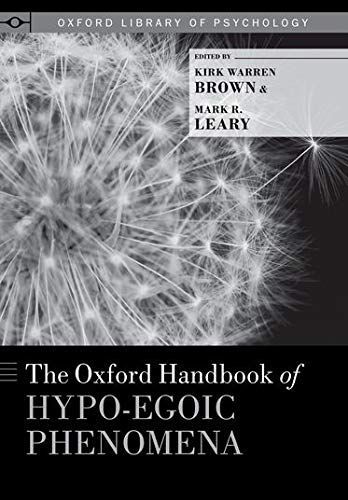
The Oxford Handbook of Hypo-Egoic Phenomena
Egoicism, a mindset that places primary focus upon oneself, appears to be rampant in contemporary Western cultures as commercial advertisements, popular books, song lyrics, and mobile software applications consistently promote self-interest. Although a focus on oneself has adaptive value forphysical preservation, decision making, and planning, researchers have begun to address the psychological, interpersonal, and broader societal costs of excessive egoicism. In an increasingly crowded and interdependent world, there is a pressing need for investigation of alternatives to a "me andmine first" mindset. For centuries, scholars, spiritual leaders, and social activists have advocated a "hypo-egoic" way of being that is characterized by less self-concern in favor of a more inclusive, "we first" mode of functioning. In recent years, investigations of hypo-egoic functioning have been taken up byphilosophers, cognitive scientists, neuroscientists, and psychologists. Edited by Kirk Warren Brown and Mark Leary, The Oxford Handbook of Hypo-egoic Phenomena brings together these vital lines of inquiry, distilling current knowledge about hypo-egoicism into a single source book.The authors of each chapter have conducted high-quality research and written authoritatively about topics that involve hypo-egoicism, all together providing an authoritative account of theory, research, and applications of hypo-egoic functioning. Part I of the book offers theoretical perspectivesfrom philosophy and several major branches of psychology to inform our understanding of the nature of hypo-egoicism and its expressions in various domains of life. Part II presents psychological research findings regarding particular psychological phenomena in which hypo-egoicism is a prominentfeature, demonstrating the implications of hypo-egoicism for well-being, emotion regulation, adaptive decision-making, positive social relations, and other markers of human well-being. Each chapter reviews the research literature regarding a particular hypo-egoic phenomenon and offers constructivecriticism of the current limits of the research and important agendas for future investigation. Thus, this Handbook offers the most comprehensive and thoughtful analyses of hypo-egoicism to date.